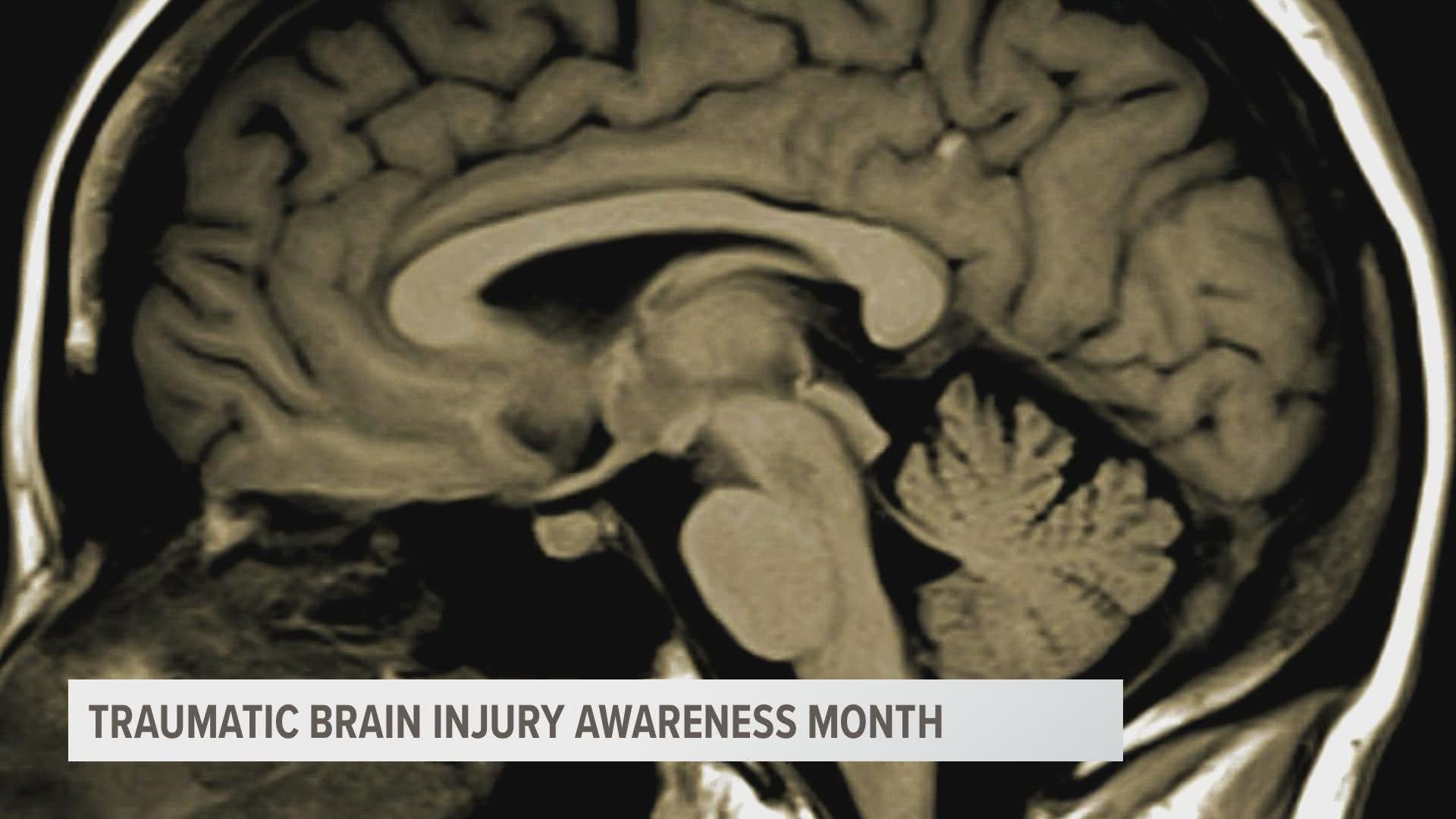GRAND RAPIDS, Mich. — March is Traumatic Brain Injury Awareness Month, and as a way to spread more knowledge about them, 13 ON YOUR SIDE spoke to an expert from Mary Free Bed.
So, what are traumatic brain injuries, or TBIs?
"It happens when a person is involved in a traumatic event whether it's mild or severe, and the force translated from the rotational injury of stopping suddenly, or the brain and the head striking an object," said Dr. Adam Lamm, a Rehabilitation Physician at Mary Free Bed in Grand Rapids.
Dr. Lamm said he sees patients who've experienced all kinds of TBIs.
"There's really a wide spectrum that an injury can be," he explained.
Dr. Lamm said that for the most part, 80-90% of TBIs will be mild, like a concussion. Those injuries are only temporary and take just weeks or months to recover from.
"But, the more severe the injury, the longer the recovery is going to be," said. Dr. Lamm.
And at Mary Free Bed, they have all kinds of technology that help patients with more severe cases recover by working on things like reaction time and balance.
Dr. Lamm said that he sees a lot of patients who suffer TBIs from collision sports, ATV riding, horseback riding and other physical activities.
But he explained that two of the biggest causes for major injuries are from falls from stairs or tall heights, and car accidents.
"And probably about half of all injuries involve alcohol, too," Dr. Lamm explained.
A traumatic brain injury can have wide-ranging physical and psychological effects, and Dr. Lamm said it's always best to get checked out even if you're not sure you have a TBI.
"There's much more risk or concern on my part of somebody missing a concussion," he said, "in other words, a patient having an injury and didn't get it detected."
Something else Dr. Lamm feels is important to realize about TBI patients, especially with long-term recoveries, is that they don't always carry their injuries on the outside like some other disabilities.
"I think one of the challenging things about brain injuries is that they can have a more subtle effect that's harder for people to pick up on," he said, "so sometimes they kind of become the invisible walking wounded in a lot of ways."
"Sometimes them trying to interact in the environment with the people around them can be a little bit more challenging," added Dr. Lamm, "because it's not readily apparent that they may be struggling."
So for the month of March, Dr. Lamm hopes awareness is brought to that, but also said it's a great time wearing proper safety equipment like helmets and making sure they fit properly and are up-to-date.
"This month is a good time to think about those things," said Dr. Lamm, "and to think about those individuals in our community and make sure that we're being as accessible and adaptable as possible for them."
You can learn more about Mary Free Bed's rehab technology and information by clicking here.
►Make it easy to keep up to date with more stories like this. Download the 13 ON YOUR SIDE app now.
Have a news tip? Email news@13onyourside.com, visit our Facebook page or Twitter. Subscribe to our YouTube channel.

